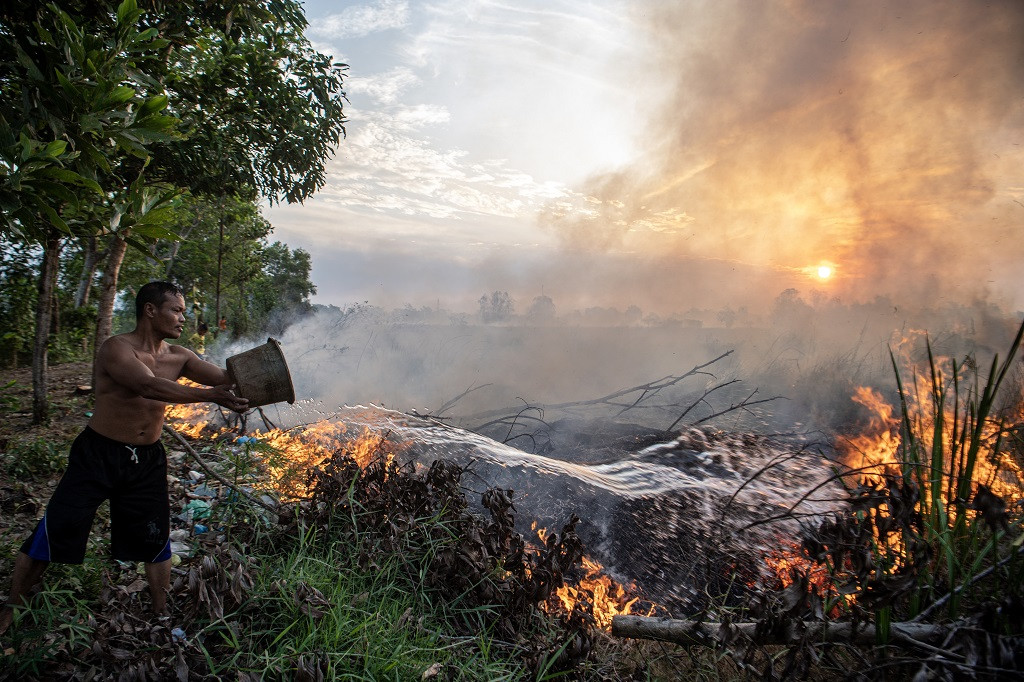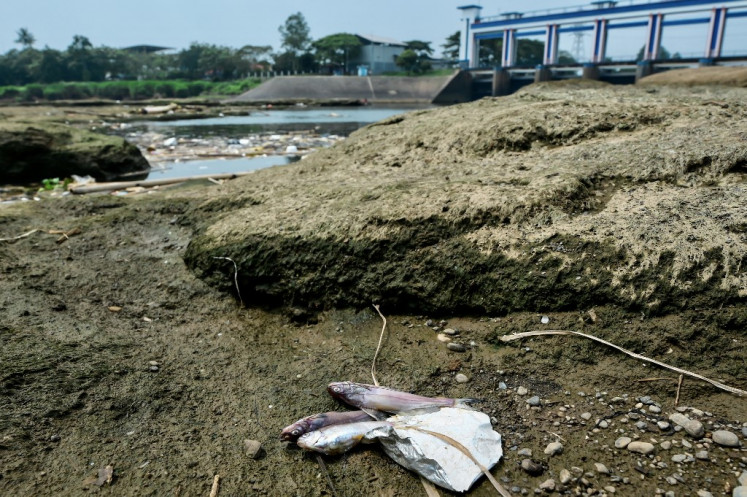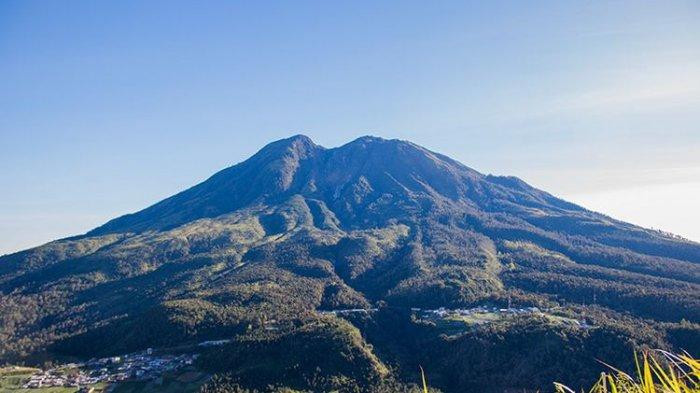Popular Reads
Top Results
Can't find what you're looking for?
View all search resultsPopular Reads
Top Results
Can't find what you're looking for?
View all search resultsBMKG warns of prolonged El Niño impacts
Two regions in East Nusa Tenggara, East Sumba and Rote Ndao, have experienced 176 days without rain.
Change text size
Gift Premium Articles
to Anyone
T
he Meteorology, Climatology and Geophysics Agency (BMKG) has warned of potential drought and pest attacks on crops as a result of the El Niño and Indian Ocean Dipole (IOD) climate phenomena.
"The BMKG and several international climate centers predict that El Niño will persist at a moderate level until December 2023 or January–February 2024. Positive IOD is expected to continue until the end of 2023," BMKG head Dwikorita Karnawati said in a press release on Thursday.
She said in the agricultural sector, food crop production is threatened because of disruptions in planting cycles, crop failures, a lack of plant species resistance and increased pest activity in dry conditions. El Niño will also affect water resources, forestry, trade, energy and health.
"In the water resources sector, this situation results in reduced water availability. In the trade sector, it triggers rising food prices, while in the forestry sector, it contributes to forest and land fires," Dwikorita added.
Furthermore, energy production derived from hydropower is expected to decline. Health risks related to sanitation, the availability of clean water for consumption and hygiene are also on the rise.
"Areas experiencing forest and land fires may also suffer from air pollution and an increased risk of acute respiratory infections," she said.
Most areas in Indonesia have experienced low rainfall from July to October 2023, including Sumatra, Java, Bali, West Nusa Tenggara, East Nusa Tenggara, Kalimantan, Sulawesi, Maluku, North Maluku and Papua.
Two regions in East Nusa Tenggara, East Sumba and Rote Ndao, have experienced 176 days without rain.
Dwikorita proposed seven strategies to address these impacts, including ensuring an adequate water supply for agriculture and communities, disseminating guidance to farmers to adapt to changing seasonal patterns and organizing training programs to help communities adopt agricultural practices resilient to drought conditions.
The fourth strategy is to strengthen forest and land management to prevent fires caused by dry weather, followed by rehabilitating ecosystems and restoring land degraded by drought or fire.
The last two strategies, Dwikorita said, are to develop a logistics preparedness plan to ensure a sufficient supply of clean water and food as well as promoting water conservation practices and disaster risk reduction efforts.











